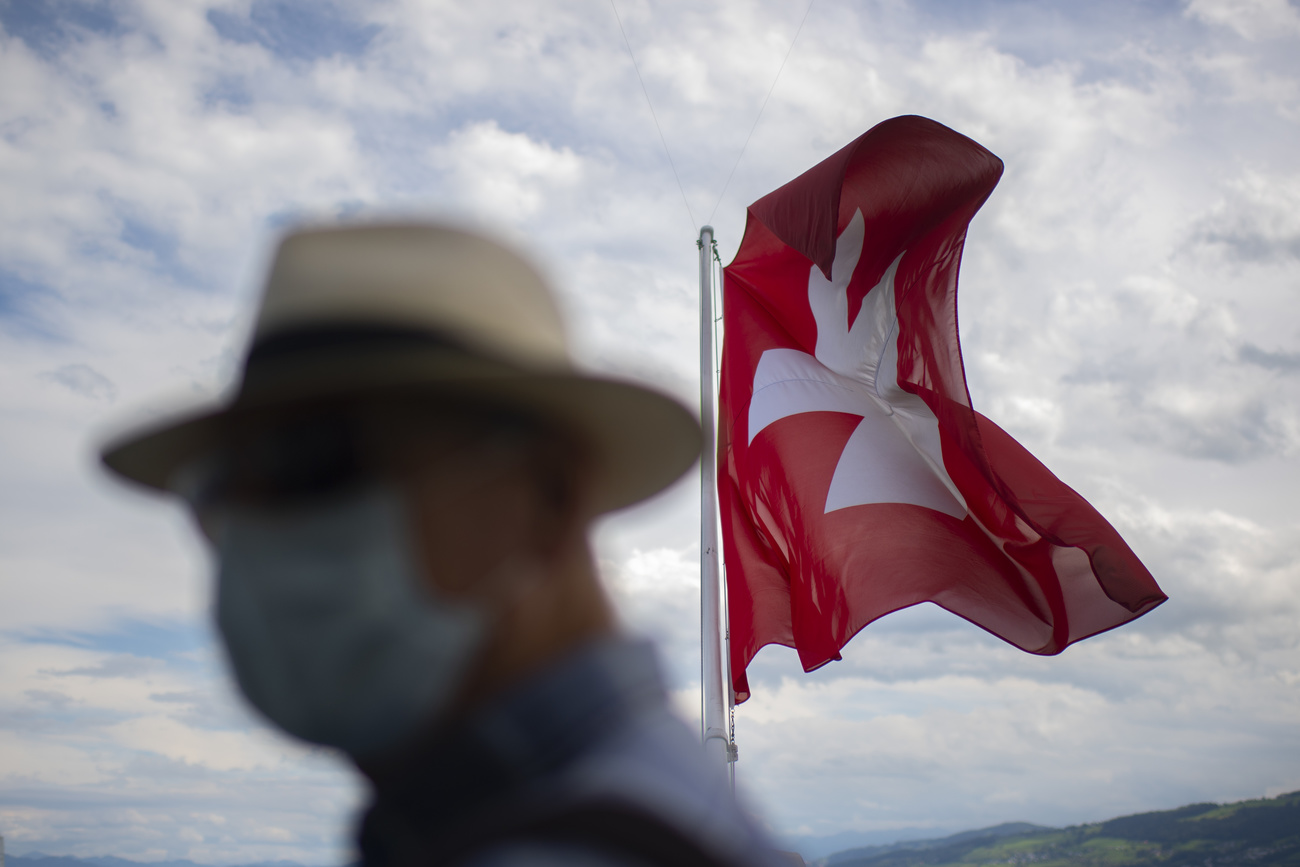
Bullish Switzerland moves on from lockdown and focuses on economy

Switzerland prides itself on the way it managed to limit the spread of coronavirus within its borders while shielding its economy from the worst ravages of the shutdown.
But as economic stimulus packages are wound down across Europe and Covid-19 cases tick up, Bern has signalled it is the economy that must be the priority in the months ahead.
In a sign of the wealthy Alpine state’s bullishness, rules of social gatherings will under current plans be relaxed from October to allow groups of more than 1,000 to congregate. Ministers spent the week with representatives of the tourism and hospitality sector discussing how best to boost Switzerland’s important winter holiday season.
We were confronted with something we had no clue about,” Effy Vayena, professor of bioethics at ETH Zurich, said of the outbreak of the pandemic and “needed to buy time and figure out what was happening”.

More
Coronavirus: the situation in Switzerland
Five months on, Swiss public health authorities much better understood the dynamics and “that [lockdowns] are not sustainable”, she said. “There’s been a big shift in focus. What we’re seeing now in Switzerland is people getting used to the idea of living in a risk society. We’re asking: ‘how do we live with this?’”

Since Switzerland’s formal state of emergency ended in mid-June it has been left to the 26 individual cantons to set their own rules. They are as sanguine as the federal government. Zurich, the biggest city, introduced compulsory mask wearing in shops only last week, months after other European countries brought in similar legislation.
The sensible course was to focus on getting life back to normal — for the economy and society as a whole, Prof Vayena said, adding that, above all, “the Swiss like balance”.
For some policymakers in Bern, the whole idea of a trade-off between the economy and public health was a false one. The strategy was never to defeat the virus using public policy tools, said one senior scientific adviser to the government in Bern, but to cope with it.
“The important thing is that we can manage the situation. When I look at other countries, maybe they’re less confident that they can,” the adviser said. “Maybe that’s why you’re seeing more border closures and hardline measures being taken and talked about elsewhere.”
In every country the pandemic has played out against existing political and social cleavages: Switzerland’s system comprising strong but locally focused communities and a laissez-faire approach from national government has been no exception.
Switzerland in March took an early decision to shut down public life but it was also one of the first in Europe to reopen its hospitality sector. Restaurants and bars have been bustling since mid-May while shops have been filled over the summer.
Alain Berset, the interior minister, stated late last month that the virus situation in Switzerland was “fragile . . . but under control”. Lukas Engelberger, the official responsible for co-ordinating federal health policy, said at the same press conference that the cantons and federal government would do all they could to avoid another public lockdown.
The Swiss public in general support that approach. The outcry to an otherwise minor gaffe by public health officials a month ago underscores the extent to which many Swiss are suspicious of renewed curbs on social life.
An official report from July 31 erroneously wrote that two-thirds of new infections in Switzerland were traceable to pubs and clubs. In fact, the government’s figures, corrected days later, showed that just 1.9 per cent of new infections occurred in nightclubs and a further 1.6 per cent in bars and restaurants. Most — 27 per cent — occurred within families.
Switzerland’s virus case numbers have, nevertheless, been steadily rising. The Federal Office of Public Health reported 216 new cases on Tuesday, bringing the rolling seven-day total to 22 cases per 100,000 residents. The UK government imposed a two-week quarantine requirement on all arrivals from Switzerland on August 27.
Critics warn that Switzerland is flirting with complacency. The rebound of Swiss social life over what has been a long and dry summer has been an almost entirely al fresco affair. As temperatures drop, it is unclear whether the virus caseload will tick up further as people gather indoors.
Bern has insisted that its confidence is backed by hard science. While the infection rate has inched up over the summer, admissions to hospital and deaths have barely moved upward from their post-lockdown lows. There are an average of just 3 deaths from Covid-19 a week in Switzerland.
Additionally, Switzerland’s tracing app and contact tracing programme has so far proved effective. The app has 2m downloads already — roughly a quarter of the population. While more are needed to make it fully effective, the early figures are promising, health officials believe.
“Switzerland has experienced a lower death rate than others and that’s due to a strong healthcare system,” said Suzanne Suggs, professor at the University of Italian Switzerland in Lugano and vice-president of the Swiss School of Public Health. “[Even] while pushed to its brink, we could handle it better than many countries.”
Nevertheless, she warned, a lot could change in the coming months. Effective communication will be key. “Everyone is tired of the pandemic and wants this virus to go,” she said. “But it is not tired of us.”
Copyright The Financial Times Limited 2020

In compliance with the JTI standards
More: SWI swissinfo.ch certified by the Journalism Trust Initiative

























Join the conversation!